'I'm Bengali, my boyfriend was black - and my mum freaked out'
- Published
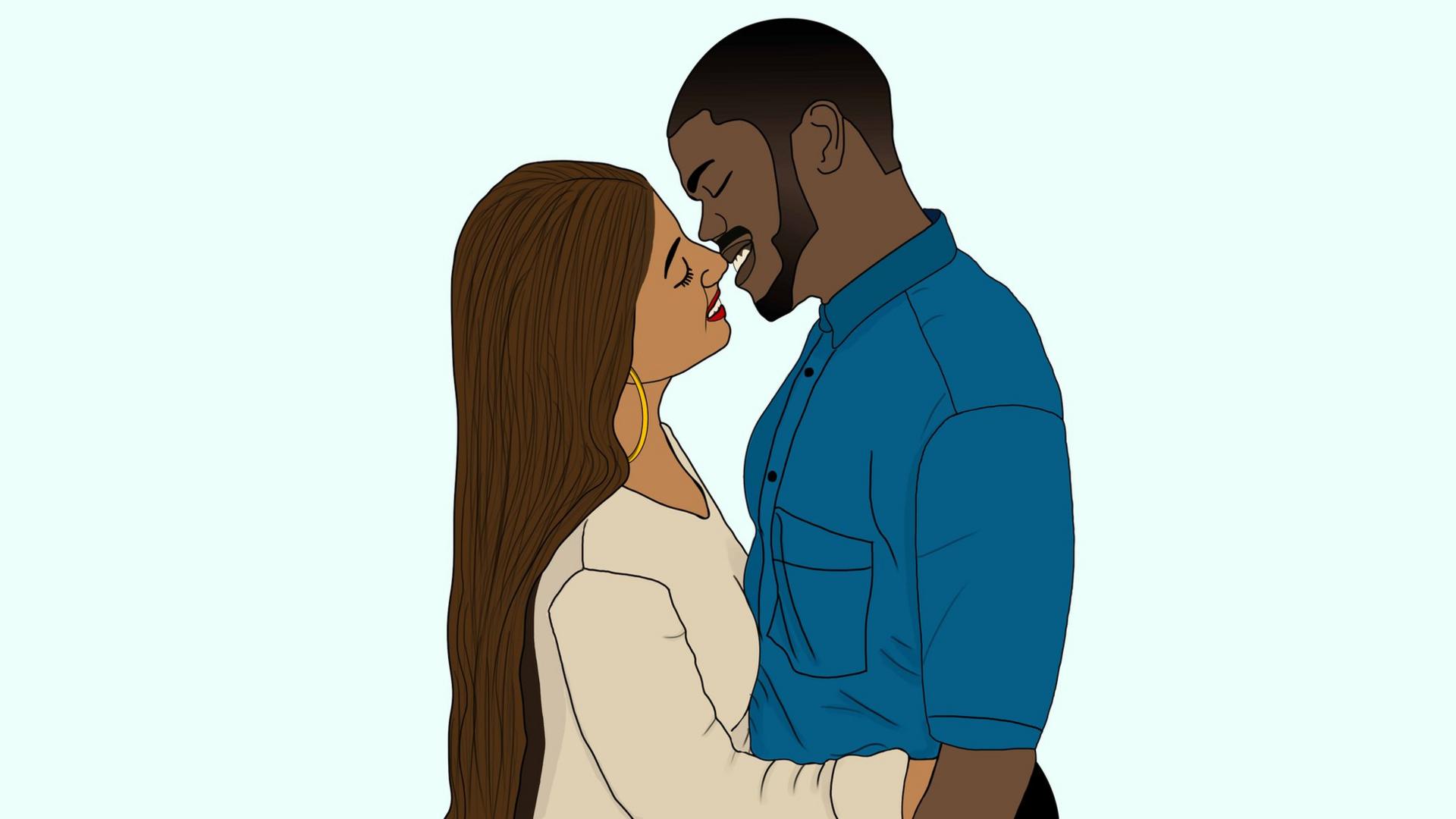
When a young British Bengali woman with a black boyfriend got pregnant, her family's reaction forced her to confront their anti-black prejudices.
As she stomped away from her maternal home, Salma began tallying up her current status. Twenty-one, two months pregnant and now, homeless. The door slammed shut behind her. And all because she was a Bengali woman insisting on having a baby with a black man.
In her community, Bengali women "didn't have" babies out of wedlock - let alone mixed-race, dark-skinned babies.
Her aunt had spent the morning urging her to get another abortion, just as she had done last time she'd fallen pregnant. But she was no longer 18. What right did they have to make this decision for her?
"I was willing to do whatever it took to have her. Yes, that meant giving up my family, giving up my career and giving up everything. But I felt like I had no other option," Salma says.
Just before Salma had walked out of the house, she'd caught sight of her mum's tears splashing on to her half-eaten roti.
"I knew she was wishing that this had been a Bengali baby. Then she could have called up the boy's family, arranged a wedding and 'legitimised' the whole problem by the end of the day."
But this father was black.
Before even more relatives could turn up and weigh in on her life, Salma grabbed her pink Nokia 3210 and stormed out. She was not getting an abortion and she couldn't stay with a family who didn't support her decision to have her baby.
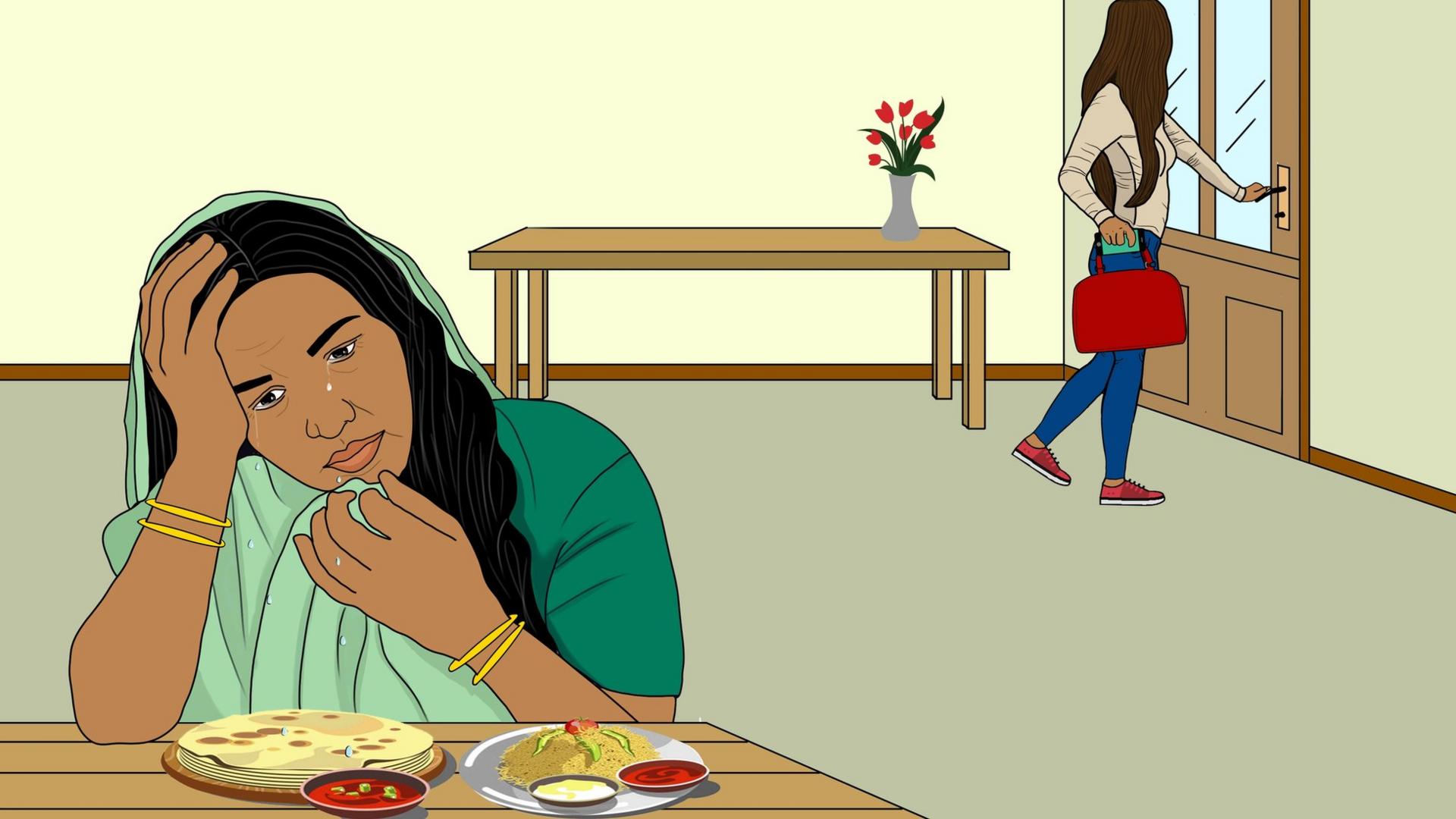
Salma's romance was a classic love story - he was the boy next door, she was the naïve heroine ready to fall in love. But in Bollywood, black heroes are not allowed.
Although South Asians have endured racism for centuries, anti-blackness - prejudice against black people - is as rife within this community as in many others.
No Bengali auntie ever came outright and said to Salma, "Black people are bad." Anti-blackness took the form of casual comments throughout childhood such as "Don't go outside in the sun, you'll get dark," or "That fair-skinned girl will get so many marriage proposals."
Her mother's anti-blackness, informed by the British colonial system she had once lived under in Bangladesh, not only took it for granted that lighter skin was better it also accepted the worst stereotypes of black men.
She told 16-year-old Salma: "They only want to get you pregnant." When she hugged her, she would quickly feel her stomach. "You won't amount to much dating one," her mum said when she found out about the boy next door.
No-one had said anything like this when three white women had married into the family.

Salma's parents had arrived in London 30 years earlier, migrating from Bangladesh to a housing estate in London, that was, incredibly, within walking distance of Harrods. They were living the immigrant dream.
"The one Harrods carrier bag was a prized possession in the household and was kept neatly folded in the kitchen, only brought out when guests would visit. Little did they know it had been used to buy the cheapest thing in the shop - peanuts," Salma says.
But then one day Salma's key stopped opening her front door - literally.
While she and her mum had been on holiday, her dad had changed the locks, leaving Salma's mum homeless with two children to care for.
After that, her own community stigmatised her for being a divorcee - but she remained an outsider among non-Bengalis too.
"Her worst fear was that I was going to end up like her," Salma says.
"Yet there I stood, defiant and ready to betray my culture, career and community for a black man who she knew was adulterous, had no plans to marry me and had now given me a daughter she didn't think I could provide for."

A week after her baby was born, Salma found herself staring at her mother's front door again. She could see the Christmas lights glistening through the window and caught a whiff of roast chicken. Anxiously, she straightened her baby's clothes and rang the doorbell.
Her brother opened the door and rejoiced at the small baby in her arms. She nervously entered the house. How would her mother react to seeing this one-week-old? The chicken was surely a good sign, she thought - it was her favourite English meal to make and food was always used as a peace offering in this house.
Timidly, she took a seat at the dinner table, leaving the baby asleep in a cot in another room. Her mother avoided direct eye contact as she served up the chicken. Suddenly, a sharp baby's cry came from the adjacent room. Perfect timing, she thought, but as she got up to leave her mother stopped her: "I'll go." Soon the crying had stopped. Her mother was holding her granddaughter for the first time.
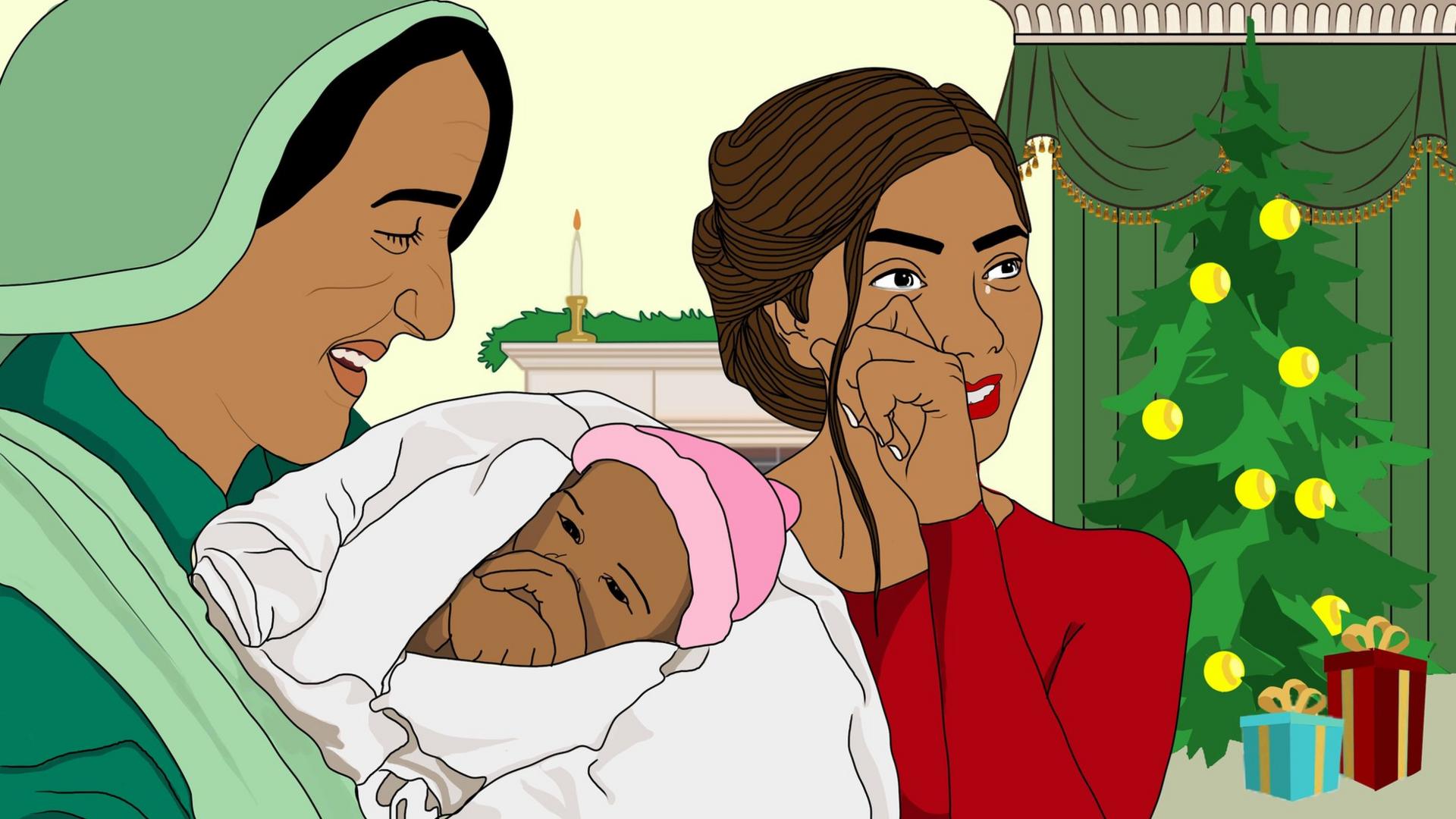
Tears formed in Salma eyes. Her mother, despite her prejudices, could love her daughter. It was the confirmation she'd been looking for to ask for help and move back home.
"Within a few days, mum had performed all the Muslim baby rituals and truly blessed my little girl," Salma says.
Yet they never spoke about what had happened in the months Salma had been away.
Five weeks later, disaster struck.
Salma found out her partner had been with another woman the whole time and that she too had just given birth. It was as though her mum's worst fears about black men had come true, her stereotypes confirmed.
Silence, tension and passive aggression filled Salma's life - and plunged her into a deep depression.
"For my mum, it felt like she suddenly had two babies to look after - me and my daughter. She would wake us both up, feed us and look after us, but while always making sure she hid us from everyone else."
Salma escaped from her troubles by writing poetry and studying. She graduated from university seven months after having her baby. She knew it would have been impossible without her mother, though she never told her that.
Her mum still disapproved of her life choices, especially when she decided to take her partner back and moved out to live with him.
She did this quickly after graduating, unable to express to her mum the mixture of gratitude and resentment she felt.

Over the following few years Salma's life took more unexpected turns.
She had another child with the same partner, who later walked out on her for good. She started to rebuild a relationship with members of her extended family who had previously ostracised her and her children. One even apologised for supporting the abortion.
But the undertone of casual anti-blackness towards her children and choices never went away. "At least they look more like you," they'd say. "Of course, he was going to leave you and end up down the wrong path," tutted her mother. "If only you had picked a light-skinned looking one," a cousin casually remarked.
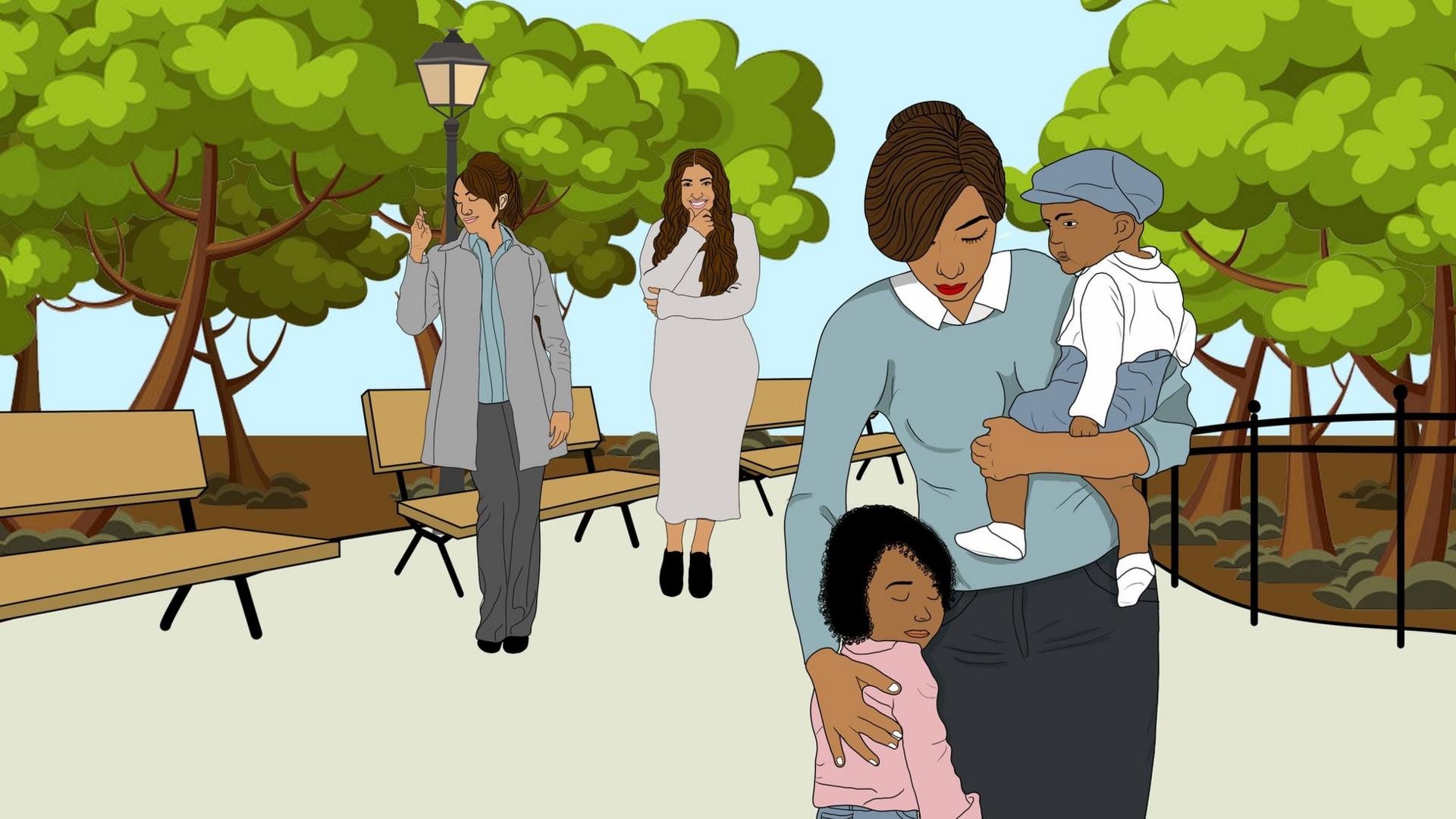
She would try to explain how offensive some of these comments were, to little effect.
But as Salma's own children grew up, she found it easier to understand some of her mother's concerns.
"I can see now how it all came from a place of love and protection," she says.
"Ultimately, she was just making the decisions that she had been taught would lead to happiness and love for her daughter."
But Salma still couldn't leave her mum's anti-black attitudes unchallenged.
One morning she finally blurted out: "It's because he was black, wasn't it?"
"No," her mum replied defensively. "Not because he was black, but because he wasn't Muslim. He couldn't understand us."
Salma stared back at her mum, shocked. That was the first time her mum had placed such an importance on religion. Well, what about the three non-Muslim women who had been welcomed into the family, she thought.
Salma now thinks this may have been her mother's way of acknowledging her anti-blackness, without actually admitting to it.
"I think in that moment, she recognised how unfair her prejudice was based on skin colour, and that's why she switched the conversation to religion," she says.
There have since been further developments in the family.
A few months ago there was an interesting development in the family - Salma's brother started dating a black woman. And to Salma's surprise, her mother accepted it without hesitation.
"That's progress for a woman who had never recognised or challenged her anti-black attitudes before," she says.
"I'm so proud of how far she's come, although we still have more to go.
"I don't blame her for thinking the way she did. But it was time I challenged it. It's time we did as a community."
Salma is a pseudonym
Illustrations by Tanzina Parisa Kabir - follow Tanzina on Instagram, external
You may also be interested in:
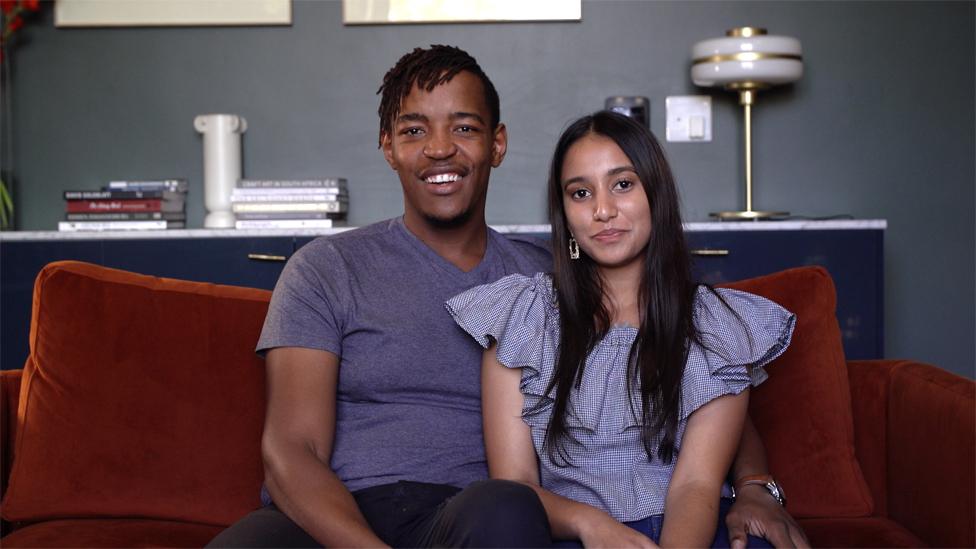
Since the end of apartheid - and even for some years before that - young South Africans have been free to date whoever they want. But relationships between black people and the country's Asian population remain quite rare - and the approval of parents, and grandparents, is not a given.
Blasian love: The day we introduced our black and Asian families